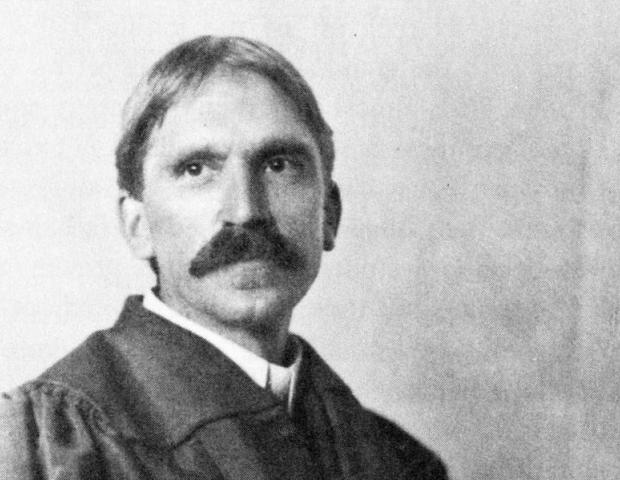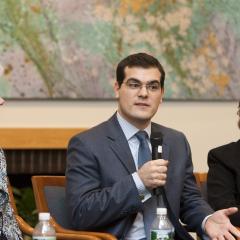David Hansen: John Dewey and the Primacy of Quality
John Dewey in 1902
By Mitch Bogen
We live in the age of Big Data. Every sector of life, from baseball to “homeland security,” seems to prioritize the crunching of numbers over other activities aimed at improvement and success. Students, parents, teachers, and above all school administrators will tell you that education is no exception. In fact, education might now be the most data-focused field of all, with the survival of a school and its faculty based mainly, or even entirely, on standardized test scores. It is increasingly rare that educators speak of teaching as an art or learning as an intensely personal act.
In other words, numerical gains in test scores trump other educational concerns. Yet for the great American educator John Dewey, whose thinking informs so much of our work here at the Ikeda Center, the goals of education aren’t so easy to quantify. Professor David T. Hansen of Teachers College, Columbia University, explores the topic of Dewey’s ambitions for education in Ethical Visions of Education, the multi-author book on diverse educational philosophies from 2007 that he edited and developed in association with the Ikeda Center (then the Boston Research Center for the 21st Century). In his own chapter of the book, called “John Dewey on Education and the Quality of Life,” using language unfamiliar in today’s educational discourse, Dr. Hansen explains that
at the core of Dewey’s thoughts on education is his belief that life constitutes a generative gift. In this view, education should assist people in learning how to realize and extend this gift. Dewey envisions humanity’s promise as limitless. He perceives no fixed boundary to human creativity and imagination, and no limit to how deeply and literally “meaning-full” human life can become.
In Hansen’s view, Dewey was primarily concerned with the quality of life and how education might enhance it. In an early paragraph of his chapter, Hansen discusses this concept in some detail. Hansen explains that for Dewey:
- The quality of life mirrors its aesthetic depth, understood as the extent to which it embodies grace, artfulness, and appreciation, whether in maintaining a home, a classroom, a business, or a government.
- The quality of life also reflects its emotional maturity and attentiveness, which Dewey contrasts with sentimentality or superficiality.
- Moreover, the quality of life displays its moral depth, which encompasses considerations of freedom, justice, compassion, humility, and personal as well as social responsibility.
- Finally, the quality of life mirrors its intellectual scope and discipline, the extent to which intelligence rather than caprice, routine, or blind habit guides its trajectory.
Dr. Hansen concludes that for Dewey, “a fulfilled life features a deepening of quality, however subtle, through each experience. Education constitutes the pathway of such a life.”
Despite the top-down pressures of data-focused education reform, many educators continue to share Dewey’s desire to help students live multidimensional lives of quality, and, bureaucratic pressures notwithstanding, they find time within each school day to nurture and celebrate the most deeply human aspects of teaching and learning.
* Hansen’s original paragraph is broken into bullet points here for ease of comprehension.




